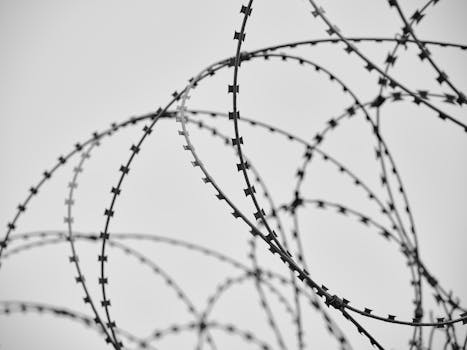
France's President Emmanuel Macron has announced a significant increase in defense spending, signaling a major shift in French military strategy in response to escalating global security threats. The ambitious plan, unveiled during a televised address to the nation, aims to bolster France's military capabilities and reaffirm its role as a leading European power in a rapidly changing geopolitical landscape. This dramatic move follows a series of escalating international crises, including the ongoing war in Ukraine, the rise of extremist groups, and increasing cyber warfare threats.
A Bold Move: France's Enhanced Defense Budget
Macron's announcement promises a substantial boost to France's annual defense budget, increasing spending to a level unseen in decades. The exact figures are still being debated in parliament, but early estimates suggest a significant percentage increase, potentially reaching over €500 billion over the next decade. This represents a considerable commitment, transforming France's approach to national security. This commitment to military modernization and defense procurement is expected to reshape the French Armed Forces and its strategic alliances.
Key Pillars of Macron's Defense Strategy
The proposed defense spending increase will focus on several key areas:
- Nuclear Deterrence: A continued investment in France's independent nuclear deterrent force remains a top priority. This involves modernizing existing nuclear submarines and investing in the development of new nuclear weapons systems. This aspect will heavily influence France's continued role as a nuclear power and its position within NATO.
- Cybersecurity Enhancements: Recognizing the growing threat of cyberattacks, a significant portion of the increased funding will be allocated to bolstering France's cybersecurity capabilities. This includes investing in advanced technologies and training highly skilled cybersecurity personnel. This addresses the critical issue of national cybersecurity and cyber defense.
- Military Technological Advancement: The plan emphasizes the acquisition of cutting-edge military technologies, including drones, artificial intelligence-driven systems, and next-generation fighter jets. This move aims to maintain France's technological edge and its competitiveness in the global arms market. The focus on military technology and defense innovation is crucial for maintaining a strong defense posture.
- Strengthening Regional Partnerships: Macron highlighted the importance of strengthening alliances with key partners, particularly within the European Union and NATO. This includes collaborative projects on defense procurement and joint military exercises. NATO defense spending is a related topic which will experience significant impact.
- Addressing Personnel Shortages: The defense plan also addresses the ongoing issue of personnel shortages within the French Armed Forces. This will involve increasing recruitment efforts and improving the conditions and compensation of military personnel. Improved military recruitment and soldier welfare are crucial elements of this initiative.
Implications for the European Security Landscape
Macron's pledge to significantly increase defense spending has significant implications for the broader European security landscape. It underscores France's commitment to its role as a major European military power and its determination to address the evolving security challenges facing the continent. The increased defense spending could potentially encourage other European nations to reassess their defense budgets and increase their own investments in military capabilities.
This increased spending also adds another layer to the ongoing discussion about European defense cooperation. France's enhanced military capabilities could potentially influence the future direction and structure of European defense initiatives.
Reactions and Criticisms
While the announcement has been largely welcomed by many, particularly within France's military establishment, there are also some criticisms. Some argue that the increased spending could divert resources from crucial social programs and further exacerbate existing socioeconomic inequalities. Others express concerns about the potential for an arms race and its impact on regional stability.
The Geopolitical Context: Why This Investment Now?
The decision to drastically increase defense spending comes at a time of considerable global uncertainty. The ongoing conflict in Ukraine has highlighted the unpredictable nature of international relations and the need for strong national defense capabilities. The rise of new geopolitical competitors and the increasing influence of non-state actors, such as terrorist organizations and cybercriminals, further add to the complexity of the security landscape.
The Ukraine War's Impact
The war in Ukraine has undeniably played a crucial role in shaping Macron's decision. The conflict has underscored the importance of a strong defense and the need for Europe to enhance its collective security capabilities. The war has also showcased the effectiveness of certain military technologies, influencing France’s military procurement priorities.
Addressing Threats Beyond Ukraine
Beyond the immediate threat posed by the war in Ukraine, Macron's decision also reflects a broader concern about emerging security challenges:
- Terrorism: France remains a primary target for terrorist groups, necessitating continued vigilance and investment in counter-terrorism efforts.
- Cyber Warfare: The increasing sophistication of cyberattacks poses a growing threat to national infrastructure and sensitive information, requiring significant investment in cybersecurity.
- Regional Instability: Instability in the Sahel region and other areas of Africa continues to pose security challenges, requiring a robust military response.
Conclusion: A Pivotal Moment for French Security
President Macron’s decision to massively increase defense spending marks a pivotal moment for French national security and for Europe as a whole. The ambitious plan reflects a clear recognition of the evolving security threats and a commitment to ensuring France's ability to defend its interests and protect its citizens. While questions remain about the long-term implications and potential costs, the initiative represents a significant commitment to strengthening France's military capabilities and reaffirming its role in a complex and increasingly unpredictable world. The success of this ambitious plan will depend on effective implementation, strategic partnerships, and a constant adaptation to the ever-changing global security landscape. The impact of this decision will be closely watched by both allies and adversaries in the coming years.




















